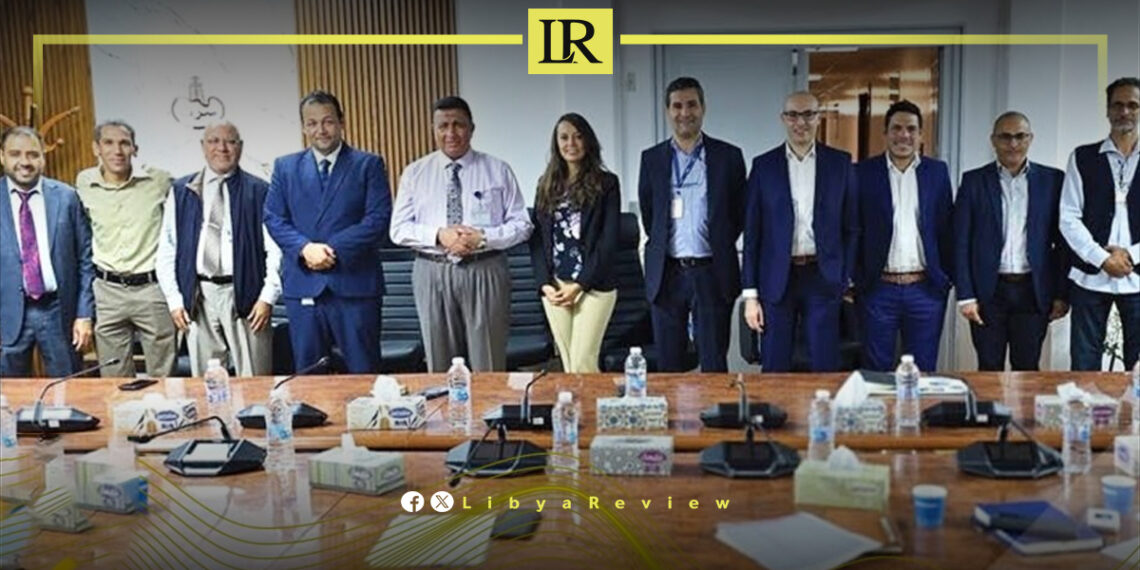Libya’s Sirte Oil and Gas Production Company held a technical meeting on Monday with a delegation from SLB (formerly Schlumberger) to explore ways to increase oil production capacity and improve operational efficiency.
During the meeting, the SLB delegation presented a range of advanced technologies used in oil fields, particularly in areas undergoing development and exploration. Discussions covered integrated initiatives in artificial lift services, specialized software, and technical testing, all aimed at supporting Sirte Oil’s strategy to enhance production levels and maximize operational performance.
Key attendees from Sirte Oil included Mustafa Hemad, Chairman of the Board, Abdelrahim Saleh, Board Member for Operations, Abdelnasser Al-Mahshesh, Director of Drilling and Petroleum Engineering, Mohamed Hussein, Director of the Chairman’s Office, along with several technical supervisors and experts.
The SLB delegation featured Qais Bonkhaila, Manager of the Benghazi Office, Marwa Al-Faki, Sales and Marketing Manager for North Africa, Alaa Fouad, Manager of Artificial Lift and Completion Services for North Africa, Noureddine Meziani, Manager of Coiled Tubing, Testing, and Stimulation Services in Libya, Lucio, Surface Processing Manager for the Middle East and North Africa, and Adel Matti, Manager of Cementing, Directional Drilling, and Drilling Fluids Services.
This meeting is part of Sirte Oil’s ongoing efforts to strengthen technical partnerships with global oilfield service providers to accelerate development projects and achieve the company’s strategic goals in production, efficiency, and sustainability.
Libya has been in chaos since a NATO-backed uprising toppled longtime leader Muammar Gaddafi in 2011. The county has for years been split between rival administrations.
Libya’s economy, heavily reliant on oil, has suffered due to the ongoing conflict. The instability has led to fluctuations in oil production and prices, impacting the global oil market and Libya’s economy.
The conflict has led to a significant humanitarian crisis in Libya, with thousands of people killed, and many more displaced. Migrants and refugees using Libya as a transit point to Europe have also faced dire conditions.
The planned elections for December 2021 were delayed due to disagreements over election laws and the eligibility of certain candidates. This delay has raised concerns about the feasibility of a peaceful political transition.
Despite the ceasefire, security remains a significant concern with sporadic fighting and the presence of mercenaries and foreign fighters. The unification of the military and the removal of foreign forces are crucial challenges.


